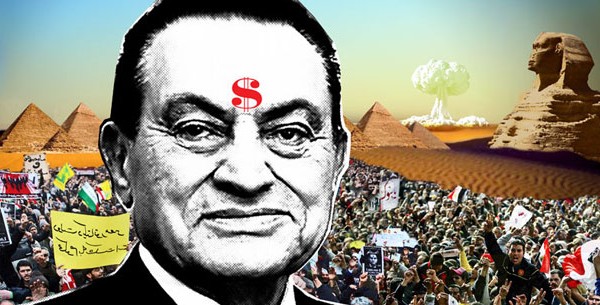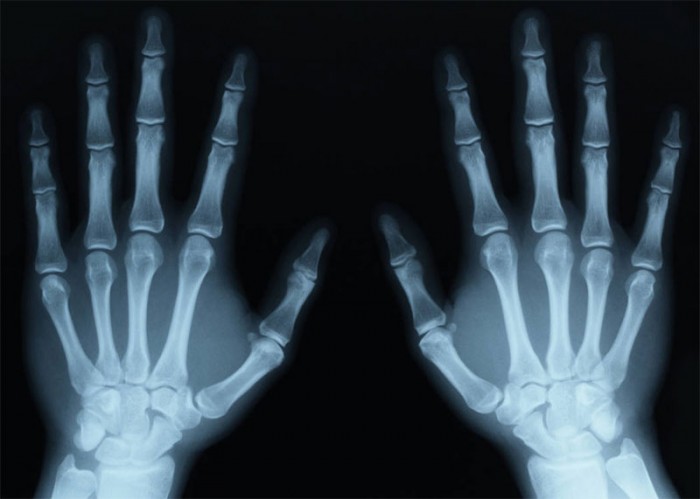The Story of a Prophet & Pilgrims
I heard the following story from an internet friend. He posted it on his youtube channel, “AFox911.” I found it to be quite instructive and therefore wanted to share it with all of you. I have changed a few names and places, but the rest is pretty much as I heard it from this friend of mine. The story seems to be originating in Islamic tradition.
Once upon a time a prophet, who was on a pilgrimage, accompanied by fellow pilgrims, gave some money to one of his companions and told him to go to get some food for everyone. The man took the money and went to a close by town. Since he was given rather a small amount of money, all he was able to buy were three loaves of bread. He was feeling very hungry and decided to eat one loaf of bread himself.
When he rejoined the group, he handed the bread over to the prophet, who asked him, “Who ate the third loaf of bread?!!” The man nervously said that there were only two loaves of bread. The prophet did not say anything further and they continued on with their journey.
Later on, the companions succeeded in hunting down a deer. They killed the deer, cooked it, and were eating it when the prophet stood up, raised his hands, and asked God to bring the deer back to life. In less than a second, the deer came back to life, jumped up, and ran away. All the pilgrims were amazed that the deer who they just killed, cooked, and were eating from its flesh, all of a sudden came back to life. At this point the prophet looked at the man who had gone after the bread and said, “I am asking you by the One who brought this deer back to life, who ate the third loaf of bread?” The man retorted that there were only two loaves of bread. The prophet again did not say anything and the group continued on with their journey.
As they were walking, they came across a river that was flooded up. The prophet asked everyone to hold his hand. So everyone joined hands with him and thus they were able to walk on water across the over-flooded river. When they reached the other side, people marveled at the miracle, “How could this be?! We just walked on water!” At that time the prophet again turned to the man who had been sent to buy bread and said, “I am asking you by the One who made us able to cross the river by walking on water, who ate the third loaf of bread?” The man retorted, “There were only two loaves.” The prophet did not say anything further and they continued the journey.
Next they came to a desert where the prophet took three big piles of sand and asked God to turn it into gold. As the man who had been asked to buy bread was watching it, the piles of sand became piles of gold. The prophet then said, “One pile is for me. One pile is for you. The third pile is for the one who ate the third loaf of bread!” At this, the man said, “I was the one who ate the third loaf of bread.” The prophet then told him, “Than all three piles of gold are for you, but do not accompany us anymore.”
The man did not care to have lost the company of the prophet and other pilgrims. He was so happy that he sat down in front of his new fortune and started to day-dream what he will do with all the gold. He was smiling all alone, looking at his wealth when suddenly three thieves came upon the scene. They saw this man sitting alone with a huge treasure of gold. The first thing they did was kill him. They then divided the gold. Each one of them took one of the piles of gold. Then one of the thieves was sent to go get some food so they could eat and then plan out their future.
One of the thieves went to a nearby town to buy food. He didn’t take one of the loaves of bread for himself like the other guy. Instead he decided to poison the food so that when he goes back, the other two thieves would eat the food and die, thus leaving him with all of the gold. So he poisoned the food and went back to rejoin the thieves.
His friends, who he left behind, were also plotting against him, thinking how to eliminate him in order to keep all the gold to themselves. So when he came back, they killed him and sat down to enjoy their meal. They ate the poisoned food and few minutes later they both died.
When the prophet came back with his companions, he saw their former companion lying dead next to the three thieves and the three piles of gold. The prophet pointed to the scene and said, “This is the life of this world and this is what it will do to those who seek after it.”
COMMENTS FROM FACEBOOK.COM/16ROUNDS:
Laurie Dasi:
This world that we live in does have an overwhelming majority of apathy, which can make people go down a road of selfish survival of greed.
Most people will do extremely malicious wrong doings onto others with ignoble intentions descending into the inferior regions.
Although, at the same time there is a pilgrimage of people together, by supporting one another to get by within a community based on honesty and integrity. Perhaps because they acknowledge that it is better to form a community of trust and kindness, based on love, with faith? Or, perhaps they are joined by fear, following a prophet, without a democratic group say?
Their leader is a prophet, as in all knowing of the future. So, he must have known the outcome of the mischievous man, by sending him on his way alone, with riches of gold.
I find it extending below the surface that the prophet gave the man three chances to come clean of the truth with knowing such a tragic ending would occur, within the adverse man that held a black heart within his soul, along with the three thieves, all too end up dead with nothing to gain, by trying to gain everything.
I believe it all occurs to present itself too our opportunity of deciphering pure meaning within our choice between right from wrong, along with our alternative karma?
“As long as we are in this material world, happiness and distress will come and go. We should not be disturbed by them. Our real business is trying for self-realization. That must go on; it must not stop. Self Realization is the goal of human life “. ~ His Divine Grace, A.C Bhaktivedanta Swami Prabhupada
Thank you, Mahat Tattva Dasa for taking time to analyze true meaning within ourselves along within our surroundings.
Humble obeisances.
Karnamrita Dasa:
Certainly death is the fate for all of those who are embodied. The blessed, who understand spiritual truth, realize that for the soul there is no death. Only the body appears to die. Those who gain spiritual treasure through loving service to God, return to the place of no-return, or the spiritual world of light, service and love.
Donna Fenton:
This story seems to be speaking about the gunas of nature and how by living within that nature and denying or ignoring the One that transcends this way of being can kill any chance you have of transcending death.
Like you said, three is the key in this story and it is filled with examples of three. You have the Prophet, the pilgrims and the man. You have the deer, the flooded river and the desert. You have the three thieves and the three piles of gold. You also have the three situations, the deer coming back to life, the flooded river and the manifestation of three piles of gold. Respectively, within the groups of three, the examples seem to indicate the three gunas as Sattva, Raja and Tama, in that order. Within the gunas is how all humans live within a mixture of them all, never able to break out and transcend them and acquire true liberation.
The Prophet, which is a symbol for Sattva or intelligence, led the pilgrims and the man to a situation where a deer (also Sattva) was killed. By the power of the One, which transcends all gunas, the deer was brought back to life. When the man was faced with the choice of being under the power of the One and telling the truth about what happened to the third loaf of bread, he denied it.
The Prophet then took them to a situation of a flooded, raging river which tore down a bridge. This is a symbol for Raja, which is active, passion, an energy which creates an imbalance. By the power of the One, all three were able to walk on water and cross over that raging river. Again, when faced with the chance of being under the power of the One and admitting to eating the loaf of bread (which is a symbol of nourishment of the Soul), he again denied it.
Then the Prophet took them to a desert, where nothing happens, where it is dry and desolate, with very little life and no water, nothing at all for sustenance. This is a symbol for Tama. But, it is here where by the power and grace of the One that three piles of gold manifest. This gold is a symbol for spiritual wealth, but to the man it only represents a means to attain pleasure.
The man, when faced with the prospect of obtaining this, then admits that he is the one who devoured the loaf of bread. Once this fact is revealed, the man is left with all three piles of gold, but he has lost his pilgrimage. The sad thing is, he didn’t care. He was just content to sit in the desert and idle away his time in daydreams of obtaining pleasure. This is the lowest state you can be in and represents Tama Guna.
Within this state he was oblivious and three thieves came upon him and killed him. To me, this symbolizes all over again what will happen when you live so caught up in the “way of the world and coveting the way of the world”, i.e. living in the three Gunas and denying the One that transcends this state of being. These three are thieves of anything spiritual and the result is death all around. You die by coveting the material way of being within the three Gunas and by being oblivious and ultimately by partaking of “poisoned food”.
Thank you for this story. It was a great wakeup call to me to look even deeper into myself.
P.S. The man also had the chance to voluntarily admit to devouring the loaf of bread, which would have caused suffering of some kind. But, it would have only been discipline from which he would have learned something so that he could transcend the pull of nature. But, he chose in every single situation to deny truly facing himself and in the end met a fate much more painful and will cause needless suffering than if he only willingly and honestly exposed himself.



